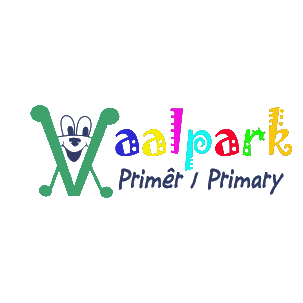Bullying and cyberbullying policy
- Introduction
This document is the bullying and cyberbullying policy of Vaalpark Primary School, as approved by the school governing body on 12 September 2013. The policy has been drafted in accordance with the provisions of the Constitution of South Africa, 1996; the South African Schools Act 84 of 1996 (‘SASA’); the National Education Policy Act 27 of 1996; applicable provincial legislation on school education; the Protection from Harassment Act 17 of 2011; the Criminal Law (Sexual Offences and Related Matters) Amendment Act, 2007, and the United Nations Convention on the Rights of the Child, 1989.
All learners have the right to attend a public school that is a safe and secure learning environment. It is the intent of Vaalpark Primary School to provide all learners with an equitable opportunity to learn. To that end, the school has a significant interest in providing a safe, orderly and respectful school environment, which is conducive to teaching and learning.
Bullying is detrimental to the school environment and to learners’ learning, achievement and well-being. It interferes with the mission of the school to educate learners, and disrupts school operations. Bullying affects not only learners who are targets, but also those who participate in and witness such behaviour. It must be addressed to ensure learner safety and an inclusive learning environment.
2. Definitions
Bullying means systematically and chronically inflicting physical hurt or psychological distress on one or more learners, educators, non-educators or visitors to the school premises. It is further defined as unwanted and repeated written, verbal or physical behaviour, including any threatening, insulting or dehumanising gesture, by a learner or adult, which is severe or pervasive enough to create an intimidating, hostile or offensive educational environment, cause discomfort or humiliation, or unreasonably interfere with the learner’s school performance or participation, and may involve, but is not limited to:
- teasing;
- social exclusion;
- threat;
- intimidation;
- stalking;
- physical violence;
- theft;
- sexual, religious or racial harassment;
- public humiliation; and
- destruction of property.
Crimen iniuria means the unlawful, intentional and serious violation of the dignity or privacy of another person.
Criminal defamation means the unlawful and intentional publication of a matter concerning another, which tends to seriously injure his or her reputation.
Cyberbullying means bullying through the use of technology or any electronic communication, including, but not limited to, the transfer of signs, signals, writing, images, sounds, data or intelligence of any nature transmitted by the use of any electronic device, including, but not limited to, a computer, telephone, cellular telephone, text messaging device and personal digital assistant.
Examples of conduct that may constitute cyberbullying include, but are not limited to:
- posting slurs or rumours or displaying any defamatory, inaccurate, disparaging, violent, abusive, profane or sexually oriented material about a learner on a website or other online application;
- posting misleading or fake photographs or digital video footage of a learner on websites, or creating fake websites or social networking profiles in the guise of posing as the target;
- impersonating or representing another learner through use of that other learner’s electronic device or account to send e-mail, text messages and instant messages (IMs) or make phone calls;
- sending e-mail, text messages and IMs or leaving voicemail messages that are mean or threatening, or so numerous as to bombard the target’s e-mail account, IM account or cellphone; and
- using a camera phone or digital video camera to take and/or send embarrassing or ‘sexting’ photographs of other learners.
Electronic communication means any communication through an electronic device, including, but not limited to, a telephone, cellular phone, computer or pager, which communication includes, but is not limited to, e-mail, instant messaging, text messages, blogs, mobile phones, pagers, online games and websites.
Extortion means when a person unlawfully and intentionally obtains some advantage, which may be of either a patrimonial or non-patrimonial nature, from another by subjecting the latter to pressure, which induces him or her to hand over the advantage.
Harassment means directly or indirectly engaging in conduct that the perpetrator knows or ought to know:
- causes harm or inspires the reasonable belief that harm may be caused to the
complainant or a related person by unreasonably:
- following, watching, pursuing or accosting of the complainant or a related person, or loitering outside or near the building or place where the complainant or a related person resides, works, carries on business, studies or happens to be;
- engaging in verbal, electronic or any other communication aimed at the complainant or a related person, by any means, whether or not conversation ensues; or
- sending, delivering or causing the delivery of letters, telegrams, packages, facsimiles, electronic mail or other objects to the complainant or a related person, or leaving them where they will be found by, given to or brought to the attention of the complainant or a related person; or
- amounts to sexual harassment of the complainant or a related person.
Retaliation means an act or gesture against a person for asserting or alleging an act of bullying. ‘Retaliation’ also includes reporting an act of bullying when it is not made in good faith.
Sexting means sending and sharing nude or semi-nude photos or videos and/or sexually suggestive messages via mobile phone texting or instant messaging to and from other learners.
3. Application
3.1 This policy applies to any learner, educator and non-educator employed at the school as well as any visitor or volunteer who engages in conduct that constitutes bullying, cyberbullying or retaliation, all of whom have the responsibility to comply with this policy.
3.2 This policy applies to bullying that:
3.2.1 takes place at the school or on school grounds, meaning a school building; on property on which a school building or facility is located, and in/on property that is owned, leased or used by a school for a school-sponsored activity, function, programme, instruction or training, with ‘school grounds’ also including vehicles used for school-related transport;
3.2.2 takes place while learners are being transported to or from schools or school-sponsored events;
3.2.3 takes place at any school-sponsored event, activity, function, programme, instruction or training;
3.2.4 takes place through the use of data, telephone, computer software or technology that is accessed through a computer, computer system or computer network of the school; or
3.2.5 takes place elsewhere, but only if the bullying also infringes on the rights of the learner at school, or if the school itself is in any way involved or implicated.
4. Prohibited activities or behaviour
- The following behaviour is prohibited:
- Bullying
- Cyberbullying
- Harassment
- Retaliation against those reporting such defined behaviour
- False accusations of bullying behaviour
- Defamation of the school’s good name
Any person who engages in any of these prohibited behaviour shall be subject to consequences.
4.2 With regard to cyberbullying, the following acts as well as harassment and sexting constitute criminal offences, and shall therefore also be regarded as misconduct in terms of the school’s code of conduct:
- Crimen iniuria – Any act that violates the dignity of another person, which may also be committed by communicating to somebody else a message containing, expressly or implicitly, an invitation to, or a suggestion of, sexual immorality or impropriety, or by sending indecent photos.
- Criminal defamation – Defamatory remarks in chat rooms, on social networking sites, or in e-mails, text messages or instant messages to third parties are some methods of committing cyberbullying.
- Extortion – Where a person intentionally and unlawfully threatens to electronically distribute information or compromising images about another person.
5. Reporting
5.1 Bullying, suspected bullying or any other prohibited action mentioned under paragraph 4.1 above is reportable in person or in writing (including anonymously) to school staff. Any person aware of any bullying, suspected bullying or any other prohibited action mentioned under paragraph 4.1 is required to report incidents to the school principal or other school staff designated by the principal.
5.2 If any person suspects or is told about a cyberbullying incident, follow the protocol outlined below:
Mobile phones
- Ask the pupil to show you the mobile phone in question.
- Note clearly everything on the screen relating to an inappropriate text message or image, including the date, time and names.
- Make a transcript of a spoken message, and again record the date, times and names.
- Instruct the pupil to save the message/image.
- Accompany the pupil to the principal or the person designated by the principal.
Computers
- Ask the pupil to pull up the material in question on the screen.
- Ask the pupil to save the material.
- Immediately make a printout of the offending material.
- Ensure that you have all the pages and information in the right order and that there are no omissions.
- Accompany the pupil, taking the offending material along, to the principal or the person designated by the principal.
- Normal procedures to interview pupils and to take statements will then be followed.
5.3 Parents and other adults who are aware of incidents of bullying are encouraged to report this behaviour to a staff member.
5.4 All other members of the school community, including learners, parents/legal guardians, volunteers and visitors, are encouraged to report any act that may be a violation of this policy anonymously or in person to the principal or principal’s designee.
5.5 Acts of reprisal or retaliation against any person who reports an incident of bullying are prohibited. If it is determined that a learner has falsely accused another of bullying, such learner shall be subject to disciplinary consequences.
5.6 In terms of section 54 of the Criminal Law (Sexual Offences and Related Matters) Amendment Act, 2007, any person who knows that a sexual offence has been committed against a child must report such knowledge immediately to a police official. Failure to report such information is an offence. Therefore, any person involved in sexting or sexual harassment, or who has knowledge of such acts, is obliged to report such knowledge.
5.7 In case of a violation of any provision prescribed in this policy, the disciplinary procedure as set out in part 3, section 2 to 5, of the school’s code of conduct is to be followed.
Alternative disciplinary measures include, but are not limited to:
- meeting with the learner and the learner’s parents;
- reflective activities, such as requiring the learner to write an essay about the learner’s misbehaviour;
- counselling;
- anger management;
- health counselling or intervention;
- mental health counselling;
- participation in skills-building and dispute resolution activities, such as social-emotional cognitive skills building, dispute resolution circles and restorative conferencing;
- community service; and
- in-school detention or suspension, which may take place during lunchtime, after school or on weekends.
6. Policy amendments
The school governing body may from time to time amend, supplement, modify or alter this policy.

